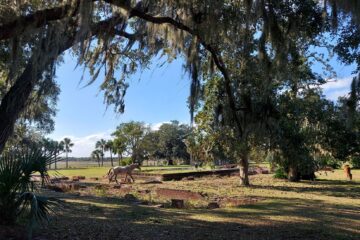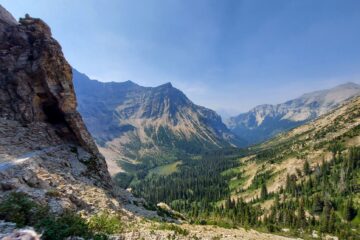“’Way Down Upon the Suwannee River”: Hiking Big Shoals State Park
Did you know Florida has whitewater rapids? Neither did I until I visited Big Shoals State Park, which contains the largest whitewater rapids in the state!
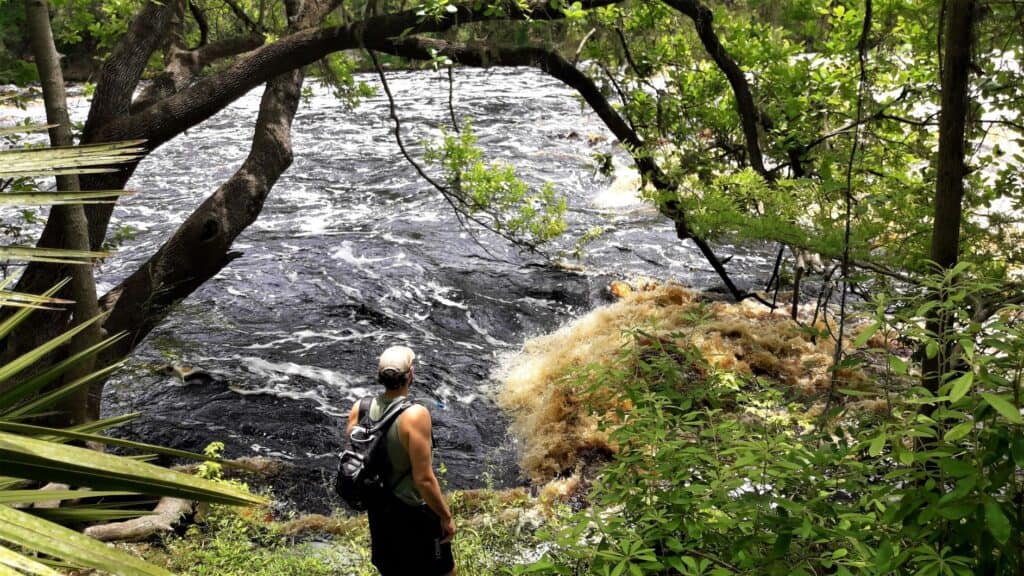
These rapids, or shoals, are on the Suwannee River, which was made famous by composer Stephen C. Foster’s song “The Swanee River” of 1851. It is now Florida’s official state song. If you’ve never heard this treasured folk tune before, have a listen here: https://www.youtube.com/watch?v=0r9iE89by7E.
The Suwannee River begins in the Okefenokee Swamp in Georgia and travels 270 miles through Florida until it reaches the Gulf of Mexico. It is considered a “blackwater river,” which means that decayed vegetation from the swamps and wetlands leaches tannins into the river water, making the Suwannee River acidic and appear dark like tea or coffee. It descends over 100 feet from its starting elevation, which is a big drop for the flat state of Florida! And here at the Big Shoals, the river elevation drops nine feet in less than ¼ mile, creating Florida’s most extensive river rapid system (when the water level is high enough).
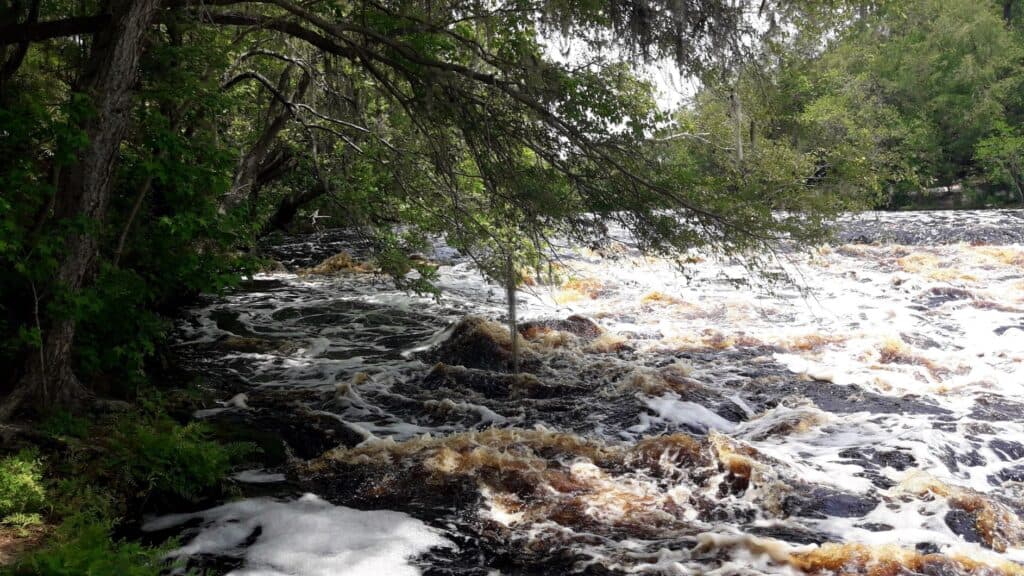
You can kayak or canoe from the put-in at the Big Shoals Entrance to about a mile down the river (at the shoals, canoes should be transported along the portage trail for safety reasons), but we did not do that this visit. Instead, we hiked part of the park’s 28 miles of trails, many of which you can also bike or horseback ride.
The hike providing the most bang for your buck is the Big Shoals Trail (see right side of map below), which is about a mile round-trip from the parking lot. The bluffs here are as high as 80 feet above the river’s banks, leading to outstanding views of the river and roaring shoals that you can’t find anywhere else in Florida.
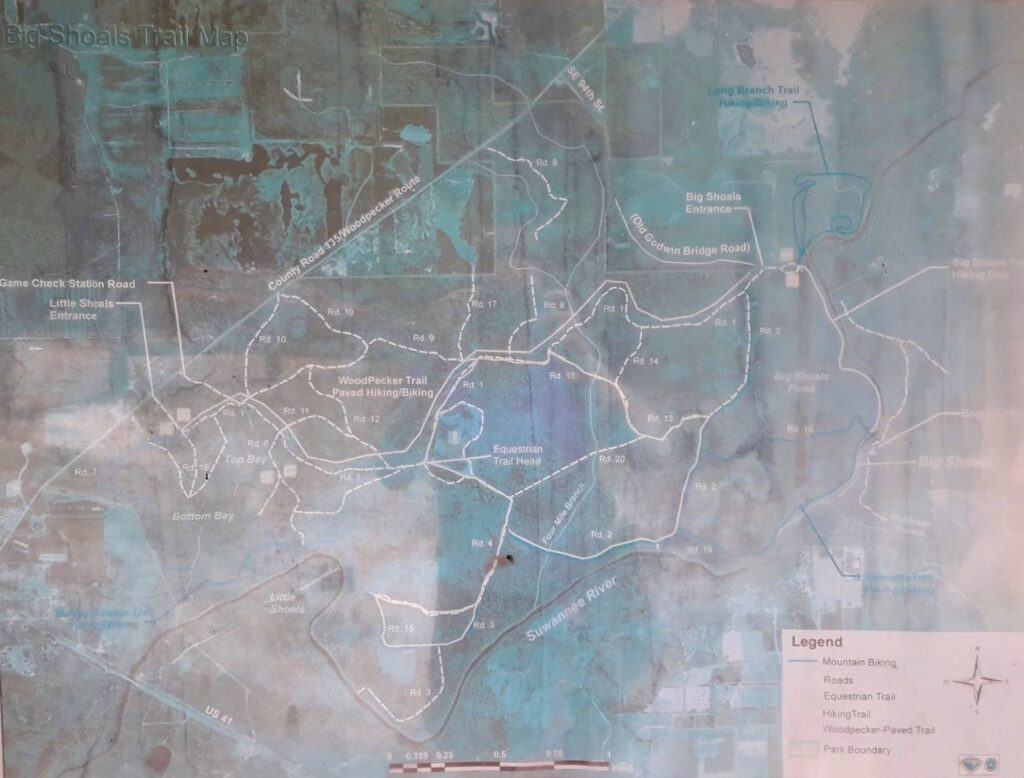
In addition to the Big Shoals Trail, we hiked parts of the Woodpecker Trail (left side of map), which is paved and easy with some fine views of the surrounding forest. We also followed parts of Roads 2 and 4, lined with tall pine trees and saw palmettos, but both these trails were a little too sandy, flat, and visually uninteresting for my taste.
Here is an important WARNING if you plan to take the Mossy Ravine Trail to view the Little Shoals (bottom of map): to say this entire trail was infested with ticks is an understatement. At some points, at least 20 lone star ticks at once were crawling on our shoes and making a beeline for our ankles and legs. Maybe they were especially active this time of year (mid-May), but the stress of constantly checking for ticks was not worth the reward of this hike or the views of the Little Shoals which were um…not as big as the Big Shoals!

So here is my suggestion: park at the Big Shoals parking lot (instead of the Little Shoals lot), hike the trail to the Big Shoals, explore along the riverbank and enjoy the raging rapids, and then if you still have energy after you’ve returned, walk all or part of the 3.4-mile paved Woodpecker Trail, which leads from the Big Shoals Entrance to the Little Shoals Entrance.
The park is worth a visit for the diversity of its terrain, from tree-shaded and rather hilly near the river, to less wooded and more open in the center, to forested and lush on the Woodpecker Trail. These are just a few of the fifteen different types of natural communities you can experience at this park. If you are not into trails or kayaking, there is still plenty to do, such as fishing, birding, wildlife viewing, or picnicking. There is also a bat house at the Big Shoals Entrance. If you are there in the early evening, you might be lucky enough to see hundreds of Mexican Free-Tailed Bats flying out to feast on insects!
I would love to hear about your experience hiking or kayaking Big Shoals State Park! Or are there other places where you have enjoyed rapids? Leave your comments below!
And keep an eye out for my next installment of this series: kayaking the Big Shoals!
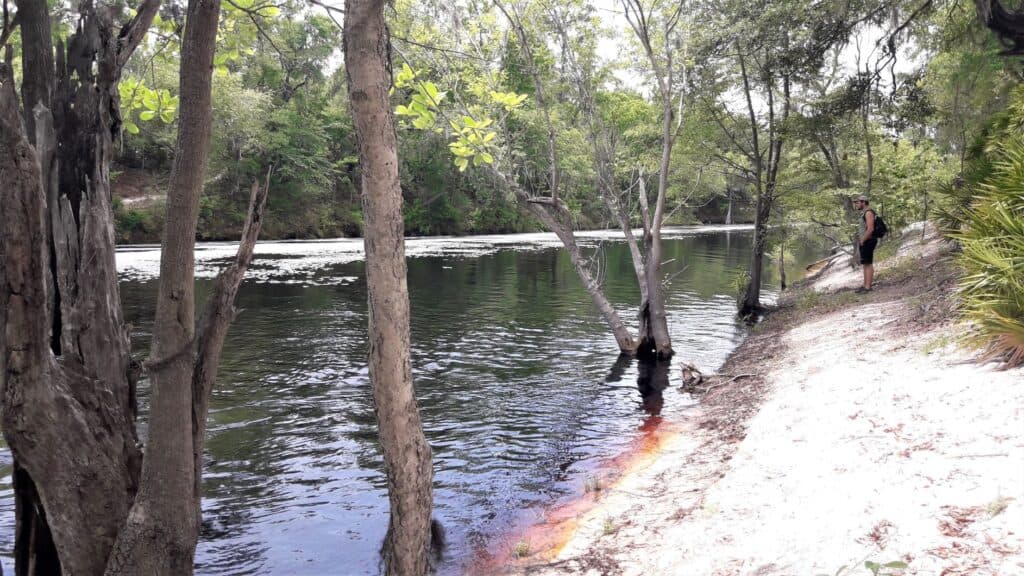
Big Shoals Entrance:
18738 Southeast 94th St.
White Springs FL 32096
Little Shoals Entrance:
11330 S.E. County Road 135
Hours: 8 a.m. until sundown, 365 days a year.
Fees: $4 per vehicle via an honor box. $2 Pedestrians, bicyclists, extra passengers.
Phone: 386-397-4331
